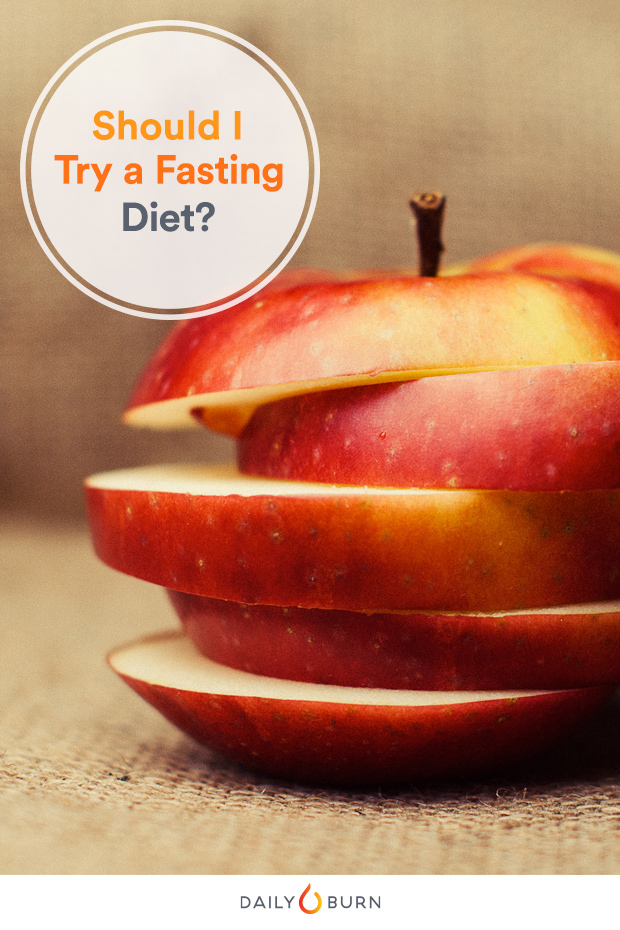
Putting down the fork every now and then in favor of a quick fasting diet might sound like a pretty simple way to lose weight. But between The 8-Hour Diet, The Fast Diet (also called the 5:2 Diet), and all of the other intermittent fasting (IF) protocols swarming the interwebs, one thing’s for certain: There are a lot of ways to not eat!
And while some studies have linked IF diets to weight loss and improved metabolic health, others show that fasting can do the reverse, explains board-certified family and bariatric physician Spencer Nadolsky, D.O., a diplomate of the American Board of Obesity Medicine. “Some people do really well with it, and others don’t.”
So should you take the IF plunge? Here are six questions to ask yourself first.
RELATED: 5 Most Popular Intermittent Fasting Methods
6 Questions to Ask Before Your Fasting Diet
1. “Do I Get Hangry a Lot?”
“Fasting can leave you feeling hungry, fatigued and irritable,” says Reema Kanda, R.D., clinical dietitian and weight management expert at Hoag Orthopedic Institute in California. And that’s especially true for people who regularly border on hangry to begin with. Sound familiar? Then fasting — or at least fasting for long periods — probably isn’t in your best interest (or the interest of anyone who comes in contact with you). If you still want to give it a go, consider trying a plan that only requires fasting between, say, 7 p.m. and 7 a.m., which can be an easier pill to swallow.
2. “Do I Need Regular Cheat Meals to Stay on Track?”
Some people just do better sticking with a healthy eating plan if they know they have a trip to the ice cream shop on the calendar. If that’s you, IF might be an attractive option, Nadolsky says. After all, when you get down to it, intermittent fasting is all about cutting a lot of calories on some days so that you can eat a bit more on others. However, it’s important to remember that your “feast” days shouldn’t be an excuse to binge like mad on unhealthy foods. Do that, and you could wind up fasting your way to weight gain and poorer health.
RELATED: The Pros and Cons of Cheat Days
“The best diet is the one that you can stick with — even after the weight comes off.”
3. “Does My Doctor Say It’s OK?”
While a little bit of fasting isn’t inherently dangerous (we all do it every night as we sleep, anyway!), prolonged stints can be a huge shock to the system, Kanda says. And that’s even more pronounced in people who have hypoglycemia, diabetes, are on any insulin-regulating medications, are taking medications, or are pregnant or breastfeeding, she says. Apart from drastically lowering blood sugar levels, fasting can lead to hormonal changes and should never be started without first consulting your doc, adds Nadolsky. This is a big one, so don’t skip it.
4. “How Much Do I Want to Exercise?”
To get the most out of your workouts, you need to eat — both for fuel and for muscle recovery. That’s just a fact of life, and it’s one that makes intermittent fasting especially difficult for gym-lovers, Nadolsky says. For that reason, intermittent fasting generally doesn’t work for frequent, intense exercisers (more on that here). However, if you have more of a few-times-per-week fitness habit, you may be able to make IF work by planning your workouts around feasting days. But remember, your diet should never require cutting back on exercise.
RELATED: Is It Safe to Exercise on Empty?
5. “Can I (Happily) Do It Forever?”
If “forever” sounds like an awfully long time to keep up any given IF approach, you’re better off looking for another one. There’s no shame in saying, “I want to be able to go out to dinner with my friends whenever I want,” or “I like having three meals and two snacks per day.” “No matter what diet you decide to follow, your adherence is key,” Kanda says. She notes that current research shows that IF is no better for weight loss than any other diet. So if it doesn’t seem like it will work for you, find something that will. The best diet is the one that you can stick with — even after the weight comes off.
6. “How’s My Relationship with Food?”
As effective as intermittent fasting can be for weight loss, it’s important that the method doesn’t become a way to avoid balanced nutrition, Kanda says. That’s where having a healthy relationship with food going into an IF plan comes into play. By focusing on balanced, healthy meals between fasts, the diet can translate not only into weight loss, but also improved health. However, for people who have struggled with food or experienced disordered eating in the past, following an intermittent fasting approach could exacerbate issues. “I’ve seen several people, especially women, simply not eat enough on intermittent fasting diets to maintain their health,” Nadolsky says. “Intermittent fasting cannot become a route to extreme dieting or disordered eating. It has to be part of an all-around balanced, healthy and grounded approach.”
